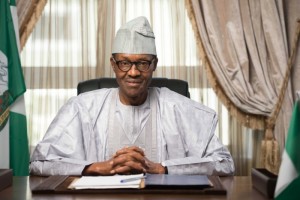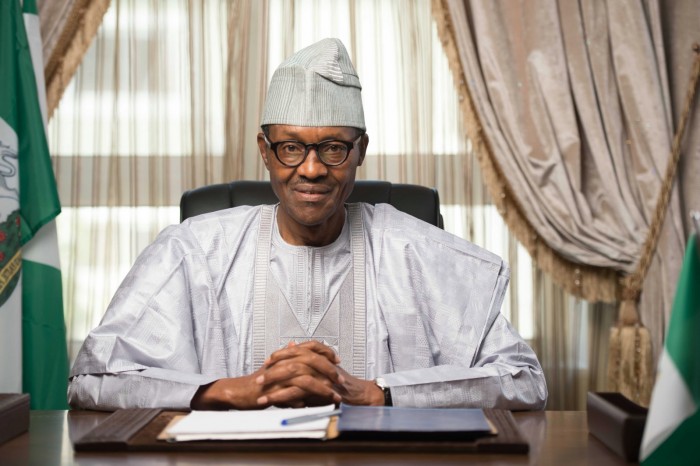Finance
Alleged Contractors’ Debt: MDGs Office denies diversion of funds

By Yemie ADEOYE
LAGOS-THE Office of the Senior Special Assistant to the President on Millennium Development Goals, OSSAP-MDGs has denied allegations of diversion of funds, embezzlement and misappropriation of funds meant for the payment of debts as alleged by some contractors reportedly being owed the office.
The contractors, through their counsel, Victor Giwa had raised the allegations in an open letter written to the President. The position was further re-echoed during a protest in Abuja on Tuesday.
In a statement issued by the office and signed by the Media Consultant to OSSAP-MDGs, Desmond Utomwen, the management claimed that “no money has been diverted or tampered with as alleged. It noted that the allegation by the contractor sand their backers that the funds budgeted for settlement of past contractual commitments is being diverted for the execution of fresh contracts is untrue and portrays their ignorance as to the workings of Government financial procedures.
The statement further noted that the demand by the contractors that money should be vired from other budgetary subheads to settle their old obligations is not within the competence of the office as this requires the authorization from the National Assembly.
“The Appropriation Act is a law of the country, which is passed by the National Assembly and signed by Mr President. Any variation or virement of funds from one sub-head to another is not within our competence. The Office is therefore obliged to implement the provisions of the 2015 Budget especially in the implementation of pro-poor projects and programmes in line with the Change Agenda of the present Administration and the mandate of the Office.”
It stated further that “It is common knowledge that under the Treasury Single Account, TSA currently being operated in the country, all public funds are domiciled in the Central Bank of Nigeria and can only be accessed through the Government Integrated Financial Management Information System (GIFMIS) platform, which is managed by the Office of the Accountant General of the Federation.”
“In all financial transactions we are guided by the provisions of the Public Service Rule (PSR), the Financial Regulation (FR) and the Public Procurement Act, 2007 amongst other Extant Rules and Regulations.”
While expressing the commitment of the office to offset the outstanding commitments, the management stated that “the Office has not received cash-backing for the Second Quarter release as alleged. Only the First Quarter has been released and over N2 billion out of that has been used to settle past contractual commitments. It maintained that “earlier this year, precisely in June, the sum of N5 billion was also utilized 100% to settle past contractual commitments; and it is further proposed that when the Second Quarter cash backing is received, a similar commitment of over N2billion is to be used to settle the liabilities of contractors, amongst others.
According to the statement, while the efforts of the office to offset the debts have hitherto received the commendation from the contractors, as is evident in their letter to the office dated26th August, 2015the current action by a section of the contractors is believed to be informed by mischief and some sinister ulterior motives other than the recovery of their debt obligations.
“It is worthy of note that in pursuit of their agitations, the said Contractors have taken their cases to the Acting Head of Civil Service of the Federation, the Honourable Minister of Budget and National Planning, Honourable Minister of Finance, the Attorney General of the Federation and the Accountant General of the Federation. We are delighted to note that all of these eminent government functionaries are currently looking into their agitations with a view to addressing same.”
“While the issue of debts to contractors is not peculiar to OSSAP-MDGs, it is appropriate to advise the Association to conduct themselves in a most civil and peaceful manner in expressing their grievances. Resorting to wild allegations, blackmail, name-calling, character assassination, intimidations, public incitement, violent demonstrations and malicious spreading of falsehood suggest some sinister motives which are not clear to us.
“On our part, our doors remain open as always to constructive engagements, dialogue and peaceful resolutions of all issues pertaining to past commitments. In this regard, we have held several consultative meetings with the executives of the Association and we still remain ever ready to engage them in future.” The stated concluded.
Banking
CBN Denies Currency Devaluation

The Central Bank of Nigeria (CBN) has refuted claims of devaluing the.
Earlier reports suggested that the CBN had devalued the Naira, lowering its exchange rate from N631 to the dollar, compared to the previous day’s rate of N461.60 at the Importers and Exporters (I&E) window.
However, the Central Bank of Nigeria (CBN) released a statement on Thursday through its Acting Head of Corporate Communications, Dr. Isa Abdulmumin, categorizing the report as false information.
In the statement titled ‘CBN Has Not Devalued The Naira’, he said the attention of the apex bank was drawn to the news report by an Abuja based newspaper edition of June 1, 2023, titled “CB Devalues Naira To 630/51”.
However, the CBN stated categorically that the news report was replete with outright FALSEHOODS and destabilizing innuendos, ‘reflecting potentially willful ignorance of the said medium as to the workings of the Nigerian Foreign Exchange Market.’
“For the avoidance of doubt, the exchange rate at the Investors’ & Exporters (I&E) window traded this morning (June 1, 2023) at N465/USS1 and has been stable around this rate for a while.
“The public is hereby advised to ignore the news report by Daily Trust in its entirety, as it is speculative and calculated at causing panic in the market,” the CBN spokesman added.
He, therefore, advised media practitioners to verify their facts from the Central Bank of Nigeria before publishing in order not to misinform the public.
Banking
BREAKING: CBN Increases Interest Rate By 0.5%

The interest rate in Nigeria has been raised to 18.5 percent, up by 0.5 percent, from 18 percent where it was pegged in March 2023.
The Central Banks of Nigeria’s (CBN) Monetary Policy Committee (MPC) resolved to this effect at its third meeting of 2023 in Abuja, on Wednesday.
Governor, CBN, Godwin Emefiele, made the disclosure in the communiqué of the MPC’s meeting, thereafter.
While engaging the media at the end of the two-day meeting, Emefiele, said the committee voted to keep the asymmetric corridor at +100 and -700 basis points around the MPR.
In the view of the MPC, rising inflation rate is traceable to the high energy cost and challenges around the supply chain, among others, which lie outside the corridors of the CBN.
Emefiele said, “The current trend in price development would continue to be monitored by the bank with greater collaboration with fiscal authority to address the drivers of inflation.”
Biztellers reports that the CBN had effected six consecutive interest rate increases, which has seen the rate move from 11.5 percent in March 2022 to 18.5 percent in May 2023.
Finance
Dangers Lurk As Nigerians Resort To Refurbished Gas Cylinders

In Nigeria, people have been forced to come up with creative solutions to cope with the effects of inflation and the economic crisis.
These improvised strategies have not only helped individuals save money, but also enabled them to stay afloat during difficult times.
In a concerning development, the recent trend of boycotting the high cost of cooking gas cylinders in Nigeria may pose a greater risk to lives than it does in terms of saving money.
Economy&Lifestyle investigations have revealed that the soaring prices of gas cylinders have reached a point where it has become increasingly challenging for average households to afford them, let alone refill them with gas.
The situation is further exacerbated by the fact that the pump price of kerosene, which would typically serve as an alternative, has become prohibitively expensive.
Upon investigation, it was found that the prices of gas cylinders vary depending on their sizes. A 3kg gas cylinder is priced at N14,000, while a 5kg cylinder costs N16,000. The larger cylinders are even more costly, with a 6kg cylinder priced at N17,000 and a 12.5kg cylinder costing N19,000.
Additionally, the expense continues when it comes to filling these cylinders with cooking gas, as it costs N2,600 for a 3kg cylinder, N5,200 for a 6kg cylinder, N8,950 for a 10.5kg cylinder, and N10,650 for a 12.5kg cylinder.
Consequently, an average household that needs to replace a worn-out 5kg cylinder would have to come up with N20,250 to purchase a new cylinder and fill it with gas, which can be a difficult feat to achieve.
As a result, many people have resorted to refurbishing their old cylinders and trying to use them as best as they can. However, this approach poses a significant danger.
Mrs. Rukayat Adesoji, a trader, shared her experience regarding her gas cylinder, which had become rusted and could no longer stand upright since last month. Due to the exorbitant prices of purchasing new cylinders, she resorted to seeking the assistance of a welder.
The welder patched the legs of the cylinder, repainted it, and ever since then, she has been using the refurbished cylinder for her cooking needs.
She said ““My gas cylinder which was 6kg got rusted and no longer stands erect since last month. When I asked for the price, I was told it was N17, 500. I was discussing it with a friend who advised me to take it to a welder to paint it and construct a new stand. I heeded to her advice and at the end spent just N3, 000 to turn my cooking gas to a brand new.”
Apart from refurbishing cylinders, some people don’t even know when their cylinders will expire. Mrs. Mercy Opara, a hair stylist, falls in that category as she explained: “I am taking my gas cylinder to the welder to spray it for me. It just cost N1, 500.
“The cost of buying a new cylinder is high. I have been using my cylinder for over 7 years and I don’t even know the expiry date. I just pray God blesses me so that I can buy a new one. But this one I am managing will look neat after spraying it for another two years.”
Mr. Adekanbi Joseph, a wielder, said he paints cylinder and “To paint and rebuild a cylinder stand, I charge N4, 500. Many people come here to paint as a new cylinder is now very expensive to get.”
Highlighting the potential dangers of using refurbished cylinders, Mr. Benjamin Hope, the Chief Executive Officer of FKT Cooking gas and general goods, emphasized the risks involved.
He stated that even a brand new cylinder can pose a risk of explosion if the locks are not properly secured after use or if the cylinder filled with gas is moved from one location to another.
He said “A brand new cylinder can explode if the locks are not well keyed after using and if the cylinder filled with gas was moved from one place.
“There are many reasons for the high cost of gas cylinders in Nigeria. One is the cost of importation due to the exchange rate. Another is the increased migration from the use of kerosene to cooking gas which has necessitated increased demand for gas cylinders. You know that in such a case there will be increased importation of cylinders.”he added














